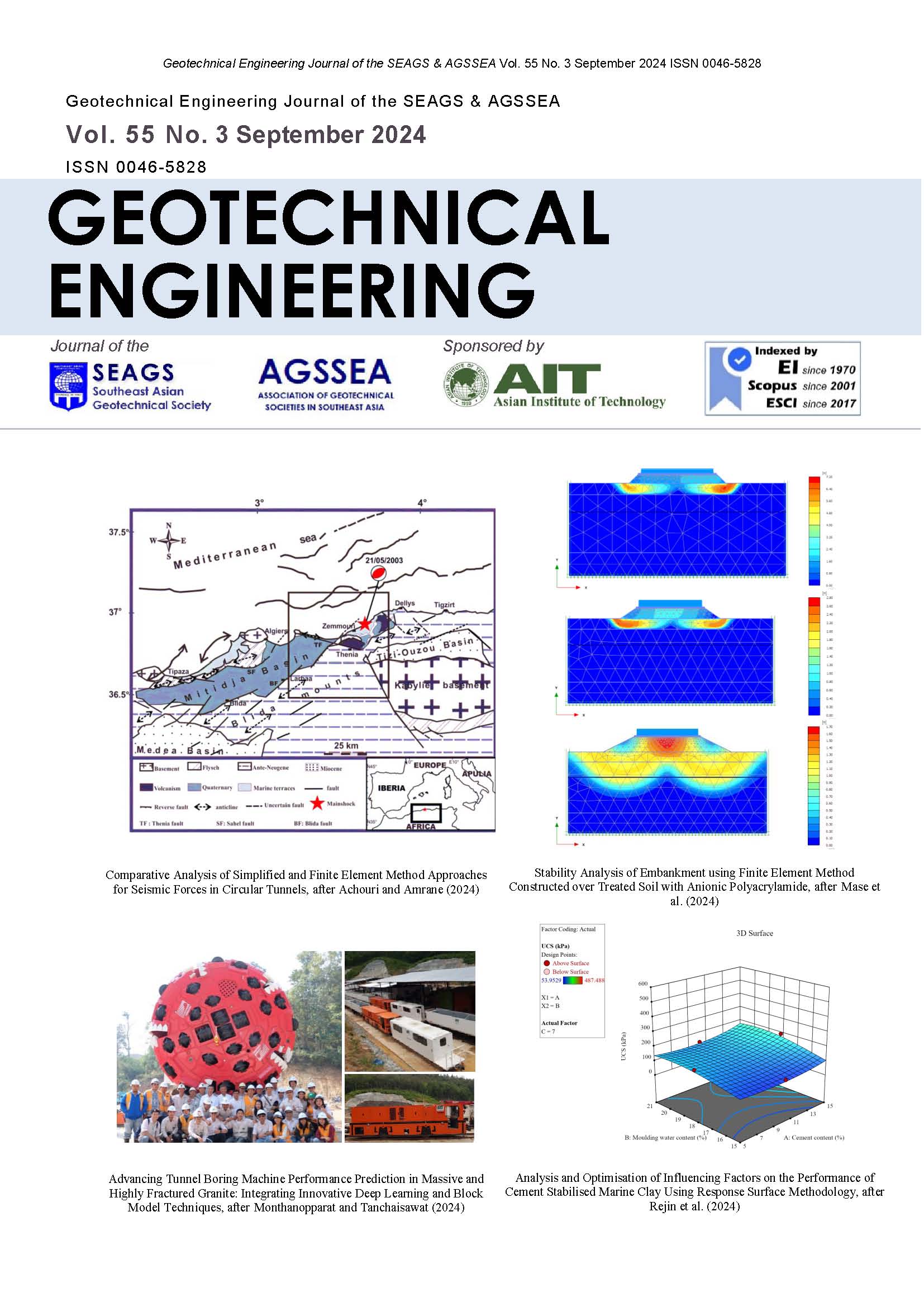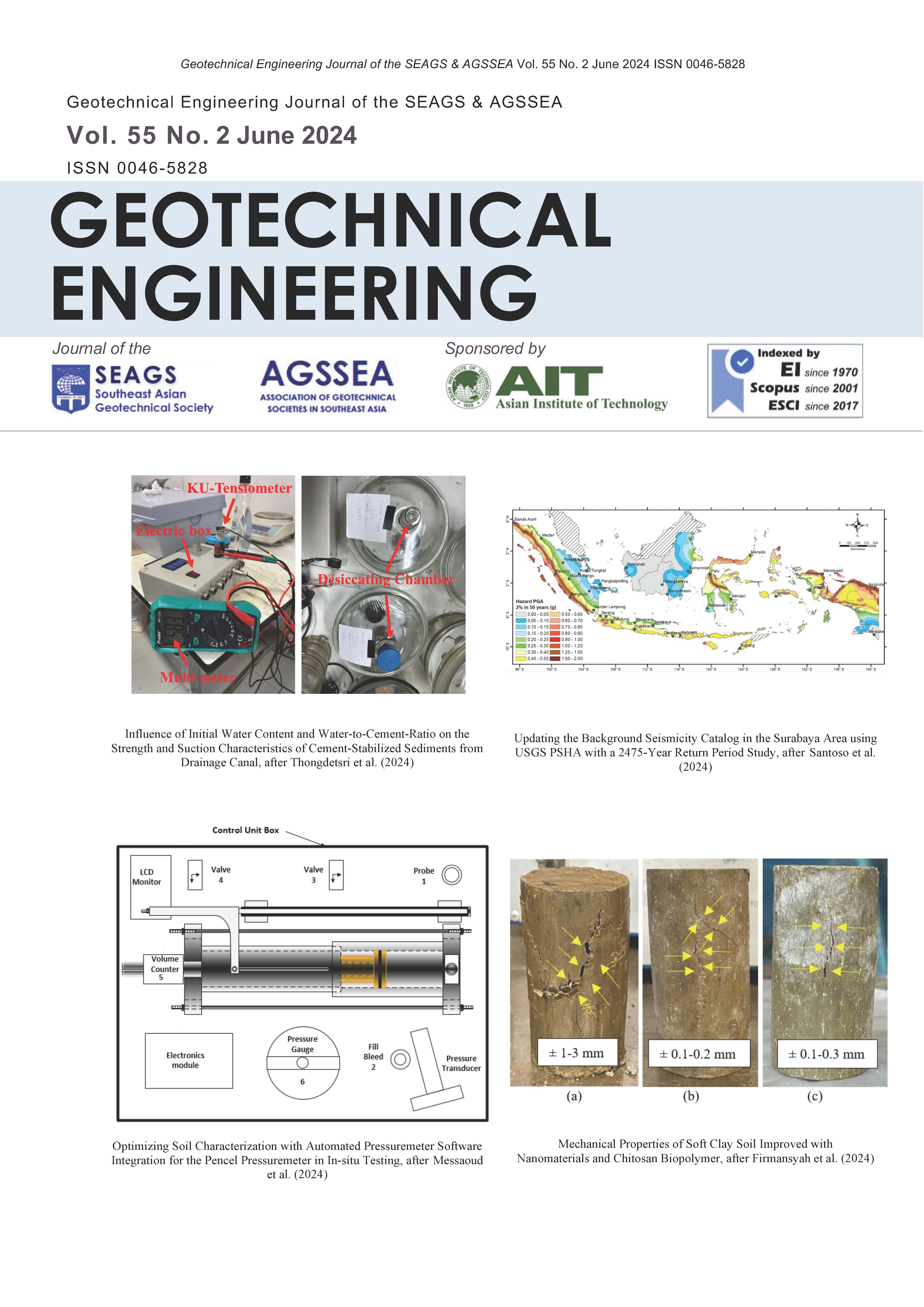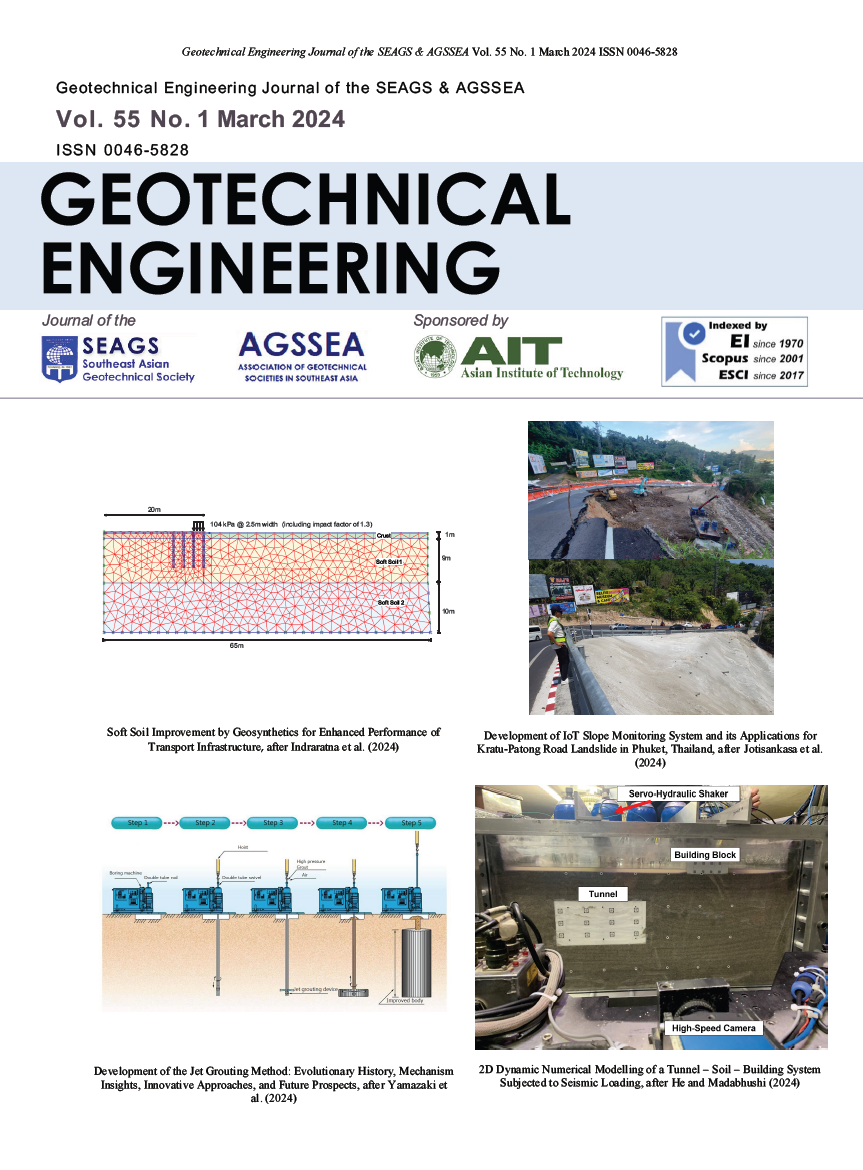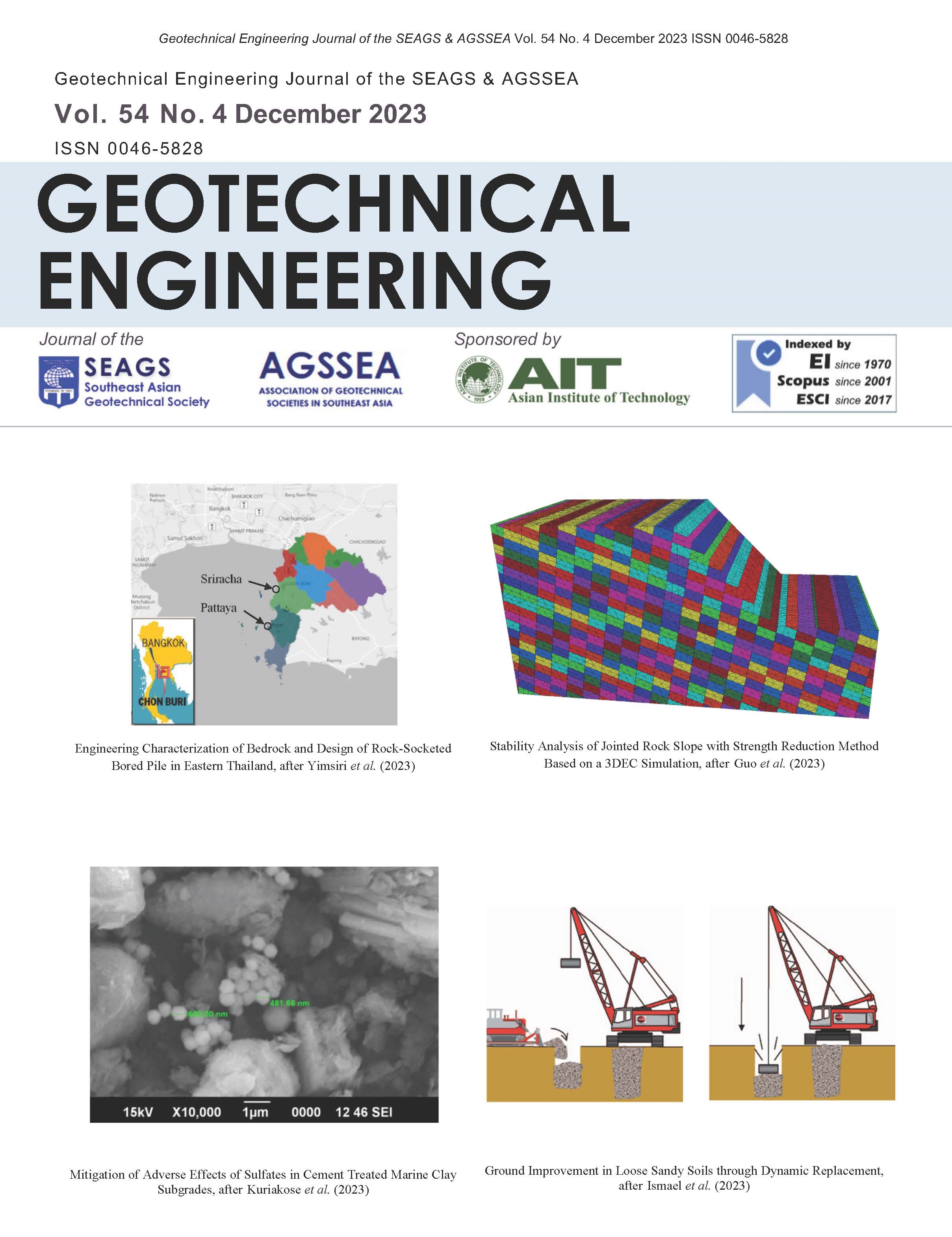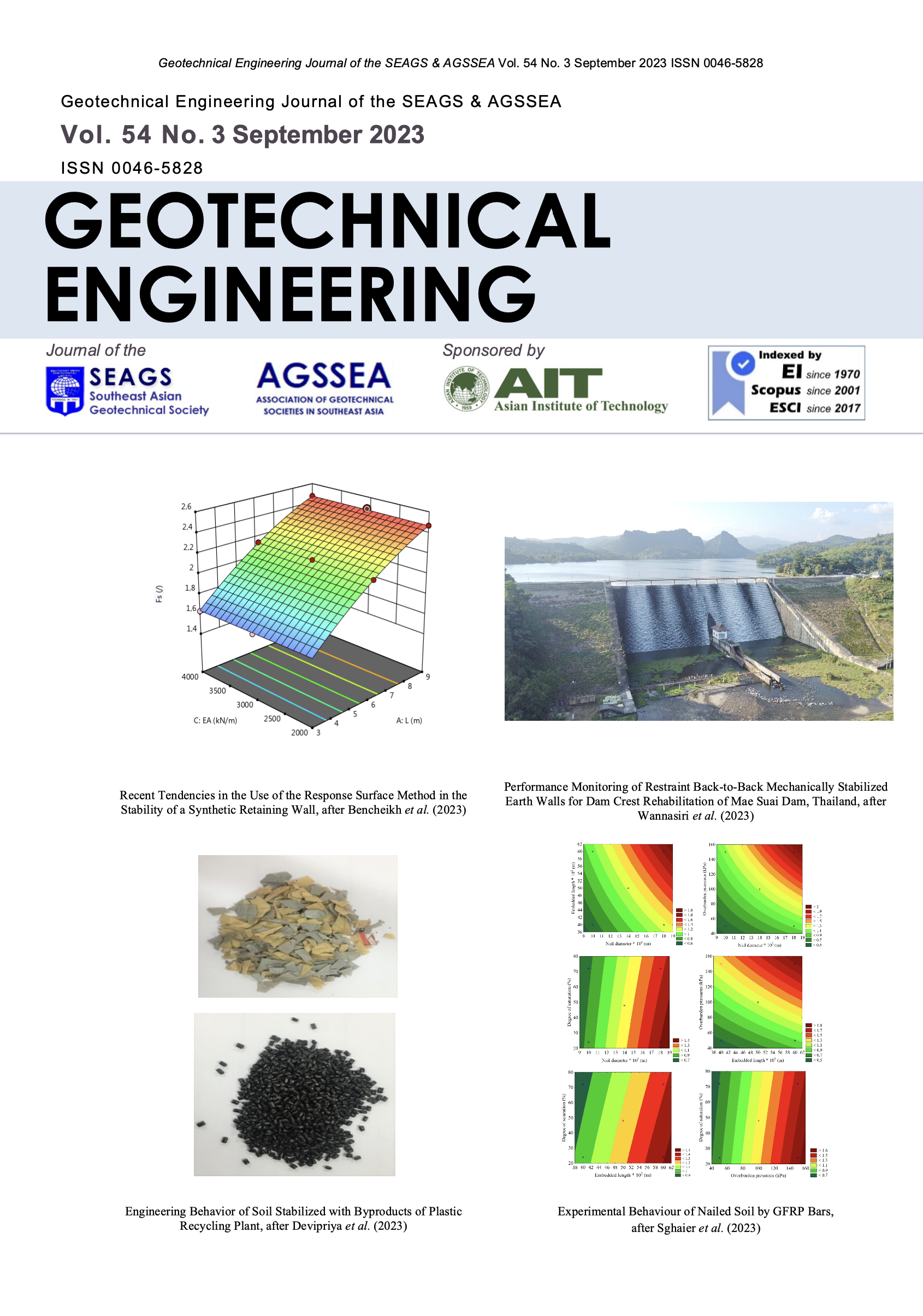Geotechnical Engineering Journal of the SEAGS & AGSSEA ISSN 0046-5828
Vol. 52 No. 2 June 2021
Stability Analysis of an Overall Failure Excavation Case in Hang Zhou
T. N. Do
ABSTRACT: In this paper, stability of an overall failure excavation case in Hang Zhou, China was analyzed using the finite element method (FEM). The retaining system of the excavation was fully modelled, including walls, horizontal struts, and vertical center posts. For comparison, the structural elements were simulated using plates with both elastic and elastoplastic behaviors. The soil response nesar failure was assumed to follow the Morh-Coulomb model. Results showed that the FEM using the elastoplastic retaining system gave a more reasonable estimate of stability of the excavation than that using the elastic support system. With the elastoplastic retaining system, yielding firstly occurred on the wall and then on the struts, which caused large movement of surrounding soil toward the excavation. On the other hand, with the elastic retaining system, failure of the excavation was only due to the great plastic heave of soil at the excavation bottom. The predicted movement of soil and wall was nearly one meter as using the ealstoplatic support system but several meters as using the elastic one.
KEYWORDS: Deep excavations, Stability analysis, Finite element method, Failure mechanism









